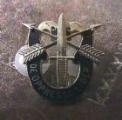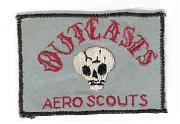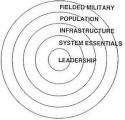I don't recall ever contending that we need a force of the size we have today. And I think it's better if we stop trying to read the minds of historical figures and simply look at the situation. Arguably we have never scaled well (during the period of Western expansion the Army was consistently too small for the task it was expected to accomplish....which we then compensated for by maintaining a force post-WW2 that is likely too large for most of what it should be doing). Likewise the shortcomings of Volunteer forces became apparent during that same period (as did some of their positives, but I want to avoid that rabbit hole).
Relying on historical lessons would lead to a diminished Army, a reasonably-sized Navy (with concurrent strength in the Marine Corps), and an Air Force likely sized somewhat below the Marine Corps. Sea lane and trade protection has always been a historical interest of the US, and one that led to more overseas commitments than any other source prior to World War I. Those landing elements were normally Marines and sailors (although over time it evolved to mostly Marines based on training and a developed mission by the Corps). The Air Force would follow a similar pattern under this construct, relying less on silver bullet technology (which eats up huge amounts of funding for debatable results...a practice that has spread to the other services after they saw how effective the AF's approach was to winning funding), and the Army would shrink drastically.
You would still see overseas conflict and entanglement (Wilson, anyone? He did that with a small Army), but it would be at reduced levels (one hesitates to use the phrase acceptable levels, but it might be appropriate). And the temptation would always be there to use airpower (as it's viewed as somehow cleaner than other forms of violence...unless you're the one being bombed). These days, I do think you need some sort of standing force beyond what folks in Madison's time might have considered appropriate, but the world has also changed dramatically since then. Perhaps a rationalized form of the British model as it currently exists might be more appropriate.





















Bookmarks